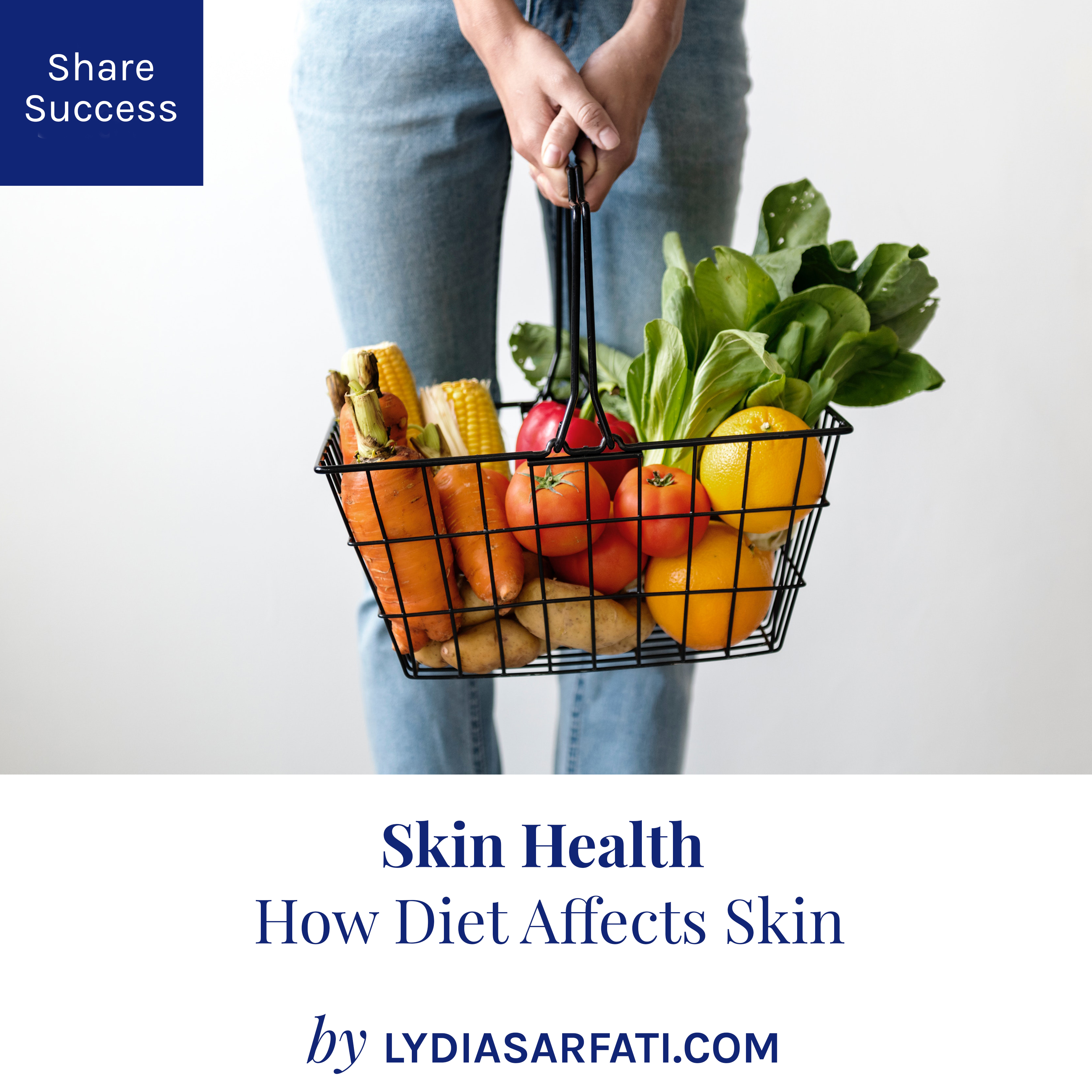
Is one of your New Year’s resolutions to eat better this year? Here’s a reason it should be: Healthy skin starts from within!
A healthy diet not only affects how we look, our energy levels, metabolism, and even our immune systems, but it also can impact the appearance of our skin.
There is evidence that proper diet and nutrition can affect acne, the appearance of skin aging and even skin cancer formation. ¹
Read below to learn how diet affects aging skin, the benefits of antioxidants and whole foods, and tips on how to maintain a proper diet.
How Diet Affects Aging Skin
In the case of aging skin, sagging skin and loss of elasticity are related to changes in collagen and elastic fibers, which are themselves impacted by diets high in sugar.
Research has found that eating foods high in sugar can lead to the formation of advanced glycation end-products (AGEs) which impact collagen formation. This in turn can lead to a reduction in skin plumpness and elasticity.²
The Skin Benefits of Antioxidants
The role in ingesting antioxidants has also been extensively researched in relation to prevention of skin cancers.
Phytonutrients and polyphenols have all shown the ability of helping to bolster the skin’s DNA to prevent damage when exposed to free radical scavengers.
Polyphenols have been shown to protect the skin from the damaging effects of UV radiation, including a reduction in skin inflammation, oxidative stress, and DNA damage.¹
Whole Foods vs. Supplements
One of the key factors to proper diet is the concept of eating whole foods versus supplements.
One reason may be due to the biochemistry of antioxidants and their effects. According to the study by Drs. Katta and Desai, “The process of oxidation, and correspondingly antioxidation, is not a straightforward chain of events, but rather represents a finely balanced system. Antioxidants, in neutralizing free radicals, may themselves become pro-oxidant.
It has been theorized that whole foods may provide substances to neutralize this newly created pro-oxidant, while isolated supplements cannot.” ¹
How to Maintain a Proper Diet
Don’t overlook your nutritional needs. Here are some tips to help make sticking to a healthy diet easier.
- Pick the right foods: A nutritious diet that consists of lean meats, fruits, vegetables and whole grains will increase your energy level, boost your metabolism, strengthen your immune system and improve your work effectiveness. Have these foods stocked in your fridge at all times.
- Create weekly menus: Planning ahead will make it easier for you to avoid the temptation of phoning the pizza-delivery man or opting to stop at the drive-through on your way home from work.
- Savor each bite: The longer it takes you to eat, the more rapidly your brain will have a chance to catch up with your stomach and transmit the “fullness message,” which means that you’ll consume less food and take in fewer calories.
Remember, you truly are what you eat! Eat beneficial whole foods and you will feel better and look better on the inside and out. Next week I will discuss one o the best super foods for your skin.
¹ Diet and Dermatology: The Role of Dietary Intervention in Skin Disease, Rajani Katta, MD and Samir P. Desai, MD, Journal of Clinical Aesthetic Dermatology. 2014 Jul; 7(7): 46–51. https://www.ncbi.nlm.nih.gov/pmc/articles/PMC4106357/
2 Advanced Glycation End Products: Key players in skin aging? Paraskevi Gkogkolou and Markus Böhm, Dermatoendocrinology. 2012 Jul 1; 4(3): 259–270. https://www.ncbi.nlm.nih.gov/pmc/articles/PMC3583887/#R125
